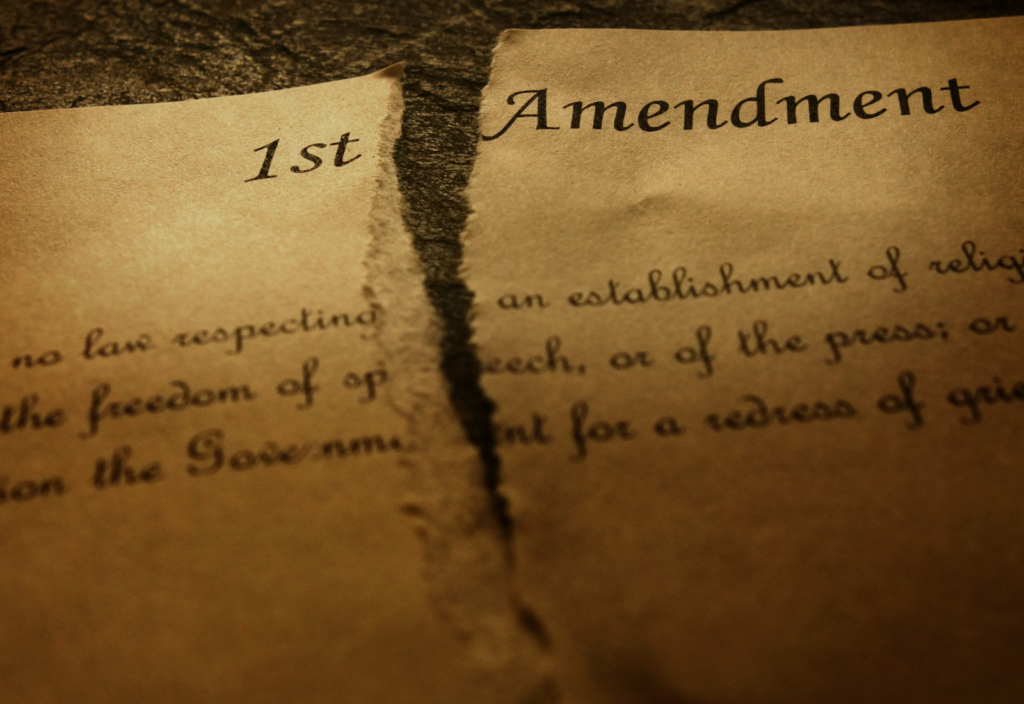The DEA violates religious freedom through its opaque and arguably illegal process for applicants seeking religious exemptions to the Controlled Substances Act (CSA). I’ve made this point before. But today, I want to look at one of the more nefarious ways in which the DEA’s exemption process violates religious freedoms. To do that, I first need to give a bit of background.
The Religious Freedom Restoration Act
If you are interested in a long history of religious psychedelic use in the post-CSA era, see this post. For a very brief summary:
In 1990, the U.S. Supreme Court decided Employment Division, Department of Human Resources of Oregon v. Smith. The Court held that a law banning peyote didn’t violate constitutional religious freedom. Even if it interfered with some religious practices, such a law was still neutral and applied generally to all people.
In response, Congress passed the Religious Freedom Restoration Act (RFRA). RFRA’s goal is to “provide a claim or defense to persons whose religious exercise is substantially burdened by government” from the application of neutral laws of general applicability.
Following RFRA, courts examining whether a law unlawfully infringes religious rights apply a standard test. They must determine whether the law (1) substantially burdens (2) a sincere (3) religious exercise. In 2006, in Gonzales v. O Centro Espirita Beneficente Uniao do Vegetal, the Supreme Court used the RFRA test to side with a religious group that wanted to use ayahuasca.
DEA religious exemption guidelines
Following Gonzales the DEA issued Interim Guidelines for seeking petitions to the CSA for religious purposes. I described the petition process here. Anyone with knowledge of the process will tell you it’s a complete joke, similar to the DEA process for studying Schedule I drugs. In short, DEA rarely responds to petitions. When it does, it just denies them. One group (in the process of suing a different agency) hasn’t been able to get a response to its petition for almost THREE years– despite having a U.S. Senator ask the DEA to respond to it.
It kind of goes without saying that this is not how the government should be handling something as fundamental to our constitution as religious liberty.
Delay violates religious freedom
I’ve already explained why the DEA’s guidelines violate religious freedom. Today though, I want to talk about delay and why it’s so significant (beyond being irritating). Point 7 of the Interim Guidelines states:
No petitioner may engage in any activity prohibited under the Controlled Substances Act or its regulations unless the petition has been granted and the petitioner has applied for and received a DEA Certificate of Registration. A registration granted to a petitioner is subject to subsequent suspension or revocation, where appropriate, consistent with CSA regulations and RFRA.
In other words, between the time of submitting a petition and DEA granting that petition (which is likely to NEVER happen), a person is prohibited from taking the psychedelics. If the person engages in that religious practice, they will lose their ability to get a petition.
Let that sink in for a minute. This means that – for an unknown but likely years’ long period of time – a person cannot engage in their religious practice. If they do engage in their religious practice, the government will take away their right to continue engaging in that practice.
Imagine the government said that someone couldn’t celebrate Christmas or Yom Kippur or any other major holiday without a permit, setup a process to apply that was nebulous and could take years, and would lock up anyone who celebrated while waiting. This is not constitutional, full stop.
The DEA’s mission is to regulate dangerous drugs. Its mission doesn’t include deciding which religious beliefs are sincere. Yet in effect, it makes that determination every time it denies or refuses to look at a petition. The DEA delay in processing petitions is unconstitutional, and just one more way DEA violates religious freedom.

























